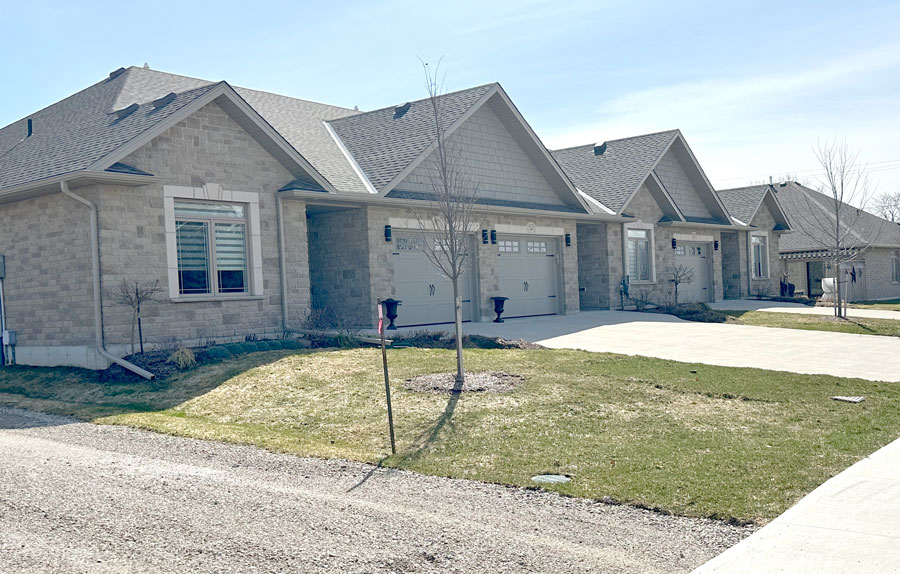WELLINGTON COUNTY – “Building a Better Ontario” is the theme of the 2024 budget released on March 26 by provincial Minister of Finance Peter Bethlenfalvy.
However, Wellington County Warden Andy Lennox says only time will tell if the health, housing and infrastructure funds made available to municipalities will be enough to stimulate any actual building.
Among the measures directed at municipalities in the budget are:
- a new $1-billion Municipal Housing Infrastructure Program;
- $625-million increase to the recently-launched Housing-Enabling Water Systems Fund;
- new $200-million Community Sport and Recreation Infrastructure Fund; and
- $30 million over the next three years for an application-based grant program to support specialized equipment for municipal fire services.
Taking aim at fast-growing issues with homelessness and mental health, the budget also promises $152 million over three years for supportive housing and an additional $396 million over three years for mental health and addictions supports and treatment.
Those are large numbers to be sure, but, particularly in the areas of housing and homelessness, Lennox suggested they may not be enough to address the scale of the problems.
“Every little bit is going to help but the problem is massive. And from what I’ve seen so far, I can’t think this is going to have a major impact,” Lennox told the Advertiser.
“But, of course, we’re grateful for every extra dollar to help address this pressing issue for our society.”
Contacted just a day after the budget’s release, Lennox said he had not had time to thoroughly go through it to assess potential impacts on Wellington County municipalities.
“I know that there’s some funding programs for infrastructure – that’s a big part of my interest – and also some additional funding for homelessness, mental health and addictions, but I’m not familiar with how those will play out in our locality,” he stated.
The Association of Municipalities of Ontario (AMO) has been lobbying the government to commit to collaborating with the municipal sector on a social and economic prosperity review.
Over 100 municipalities, including several in Wellington County, have passed resolutions in support of the proposal to fundamentally rethink the provincial-municipal fiscal relationship.
“While AMO is disappointed that this commitment was not included in today’s budget, there is no question that municipalities’ concerted action resulted in critical investments in areas like infrastructure and mental health and addictions that will make a meaningful difference to municipalities,” AMO officials noted in a post-budget statement.
“AMO appreciates the support through budget 2024, but the potential to achieve more together is obvious,” the statement adds.
The budget offers municipalities some additional taxation options, including the ability to impose additional taxes on vacant homes in an effort to improve housing supply and reduce the number of unoccupied units.

WARDEN ANDY LENNOX
Lennox feels this measure is more likely to help in larger municipalities.
“I don’t have any data to suggest it is an issue (locally) and I’m not even sure how we would know if housing is sitting vacant,” he said.
“Yes, anecdotally, we probably do have a unit here and there, but sometimes those are just transitional issues, so I’m really not familiar with it being a problem.”
However, he added, “in large urban centres, there have been investors buying up the likes of condominiums and really not looking to rent them out, but waiting for the market to go up and flip.”
Lennox is more optimistic about a budget provision allowing municipalities to offer lower property tax rates on purpose-build rental housing.
“My own experience in Wellington North (where Lennox is mayor) was that we offered some incentives through development charges for purpose-built rentals, and did see some uptake … I’m sure property tax would have a much larger impact, potentially, on the potential investor in rental property,” he explained.
AMO’s statement indicates the association is pleased the budget contains a commitment that property assessment reviews, deferred through the pandemic and unchanged since 2016, will not move forward until the Ministry of Finance has completed a review of the property tax system.
Prior to 2016 assessment reviews were conducted every four years by the Municipal Property Assessment Corporation.
“They’ve been talking about this review (of the property tax system) for some time now and I don’t have any sense of what the outcome of that review might look like,” said Lennox.
“I do think the fact we’re this far out of the reassessment cycle is creating some unfairness in our current taxation system.”
However, he added, “if they have reforms to suggest, that are going to make things more fair and equitable, absolutely let’s talk about it.”
Lennox said he feels municipalities will need further funding to address the pressing need for “growth-related infrastructure” in order to meet the province’s target of building 1.5 million homes by 2031.
“There’s a lot of infrastructure needed to accommodate that. And with the reduction that they legislated out of development charges, municipalities are really up against, ‘How do we fund this infrastructure?’” said Lennox.
“If the federal and provincial government are not going to be able to support that, I think we’re going to have communities running up against the ability to fund the necessary infrastructure to accommodate the growth that our province will desperately need.”
Lennox said municipalities have been stressing the urgent need for funds to deal with infrastructure and housing issues.
“Certainly it’s been a big part of our advocacy efforts with the province … Either we’re not delivering the message in the right way, or the message is not getting through,” he stated.




